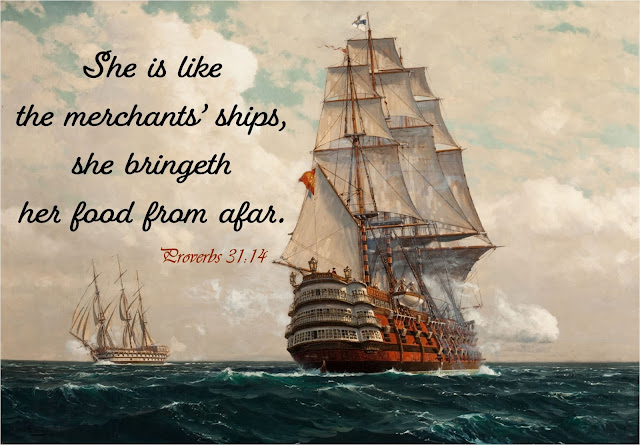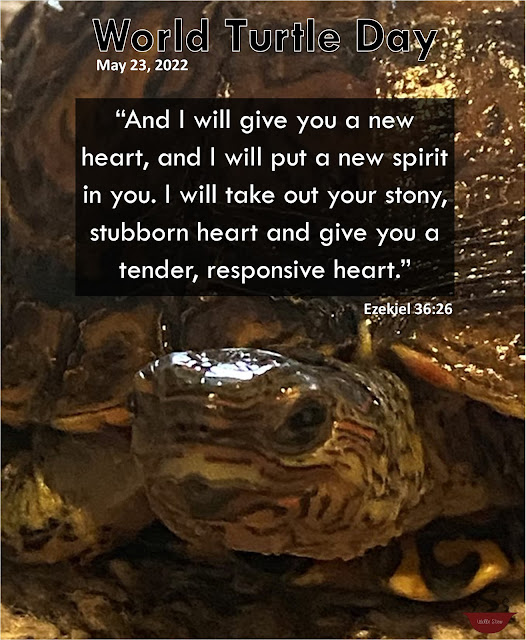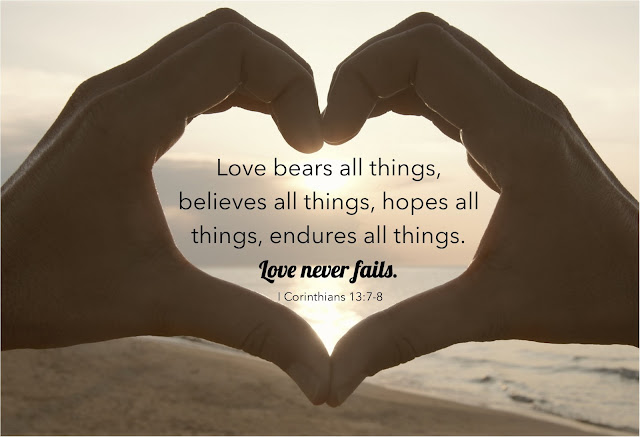Proverbs 31: Week 18 | The Wolfe Notes
Welcome to week eighteen of our Proverbs 31 journey! This week we are looking into the virtue of resourcefulness by researching food and ships. If you'd like to return to one of our previous stops, let our "Wolfe Notes" guide you.
- In January we examined our value with the help of Proverbs 31 verses 10 and 29.
- In February we learned what uplifting means by looking at Proverbs 31:11 and 23.
- In March, we considered the virtue of respect by studying Proverbs 31:12 and 28.
- In April, we trained to be hardworking with Proverbs 31:13 and 19 as our instructors.
- In May, we are seeing what it takes to be resourceful by examining Proverbs 31:14 and 21.
Contents:
*I am Hardworking because... Considered personally, relationally, and spiritually.
Defining Resourceful and applying it to ourselves.
Proverbs 31:14 phrases and key words.
*Literal Meaning What this verse means at face value.Defining Resourceful and applying it to ourselves.
Proverbs 31:14 phrases and key words.
What is Weird? Researching something odd about the verse.
About Ships from various sources.
About Food from various sources.
*I am Hardworking Because...
Considered personally, relationally, and spiritually.
- Personally: I prioritize what's important to me and use my own effort to acquire what I need.
- Relationally: I commit to spending time with others and work at building them up. When there is a disagreement, I accept that we are not the same person and do not have to agree on everything. At times when I do not think they are making the best choice or when I am unable to help, I lay them in Your hands and trust You direct their path.
- Spiritually: I seek You. Even when it's hard. Even when I have doubts. Even when there are distractions. I train myself to keep my thoughts stayed on You. Your work is to make me into a holy masterpiece worthy of unification with You. My work is to surrender to your plan and seek to know you more, so I do.
- Intellectually: I stop believing that it's what I do or how busy I am that makes me worthy. It's not. You define my worth. Instead, I choose actions, words, and deeds that show I'm walking hand-in-hand with You. You, whose yoke is easy and whose burden is light. Because when I go my own way, I fall (Romans 1:24-32)
*These are targets, things I try to do. By no means do I achieve them consistently.
Defining Resourceful
And applying it to ourselves.
- According to Merriam-Webster, resourceful means: "able to meet situations : capable of devising ways and means"
- As I consider how this virtue relates to me personally, my immediate reaction is connection. In a superhero sort of way, I meet every situation life throws at me with ease and enthusiasm: planning meals, supporting others, meeting my blogging goals, cleaning, organizing, and choosing how to spend my downtime. But, as I consider the choices I make in each of these situations, I realize I often fall short of being successfully resourceful. I am not capable of meeting every situation that arises with adaptability and a quick solution. I do not always prioritize correctly, usually favoring "my own thing" and "my own wants." I often get curt and angry when people do not react the way I rehearsed for them in my head. I get stuck in patterns of comfort, ease, and familiarity instead of what is best. I have yet to find a way to complete my "to-do" list every day, or to find the ambition to do it, or to perform it without grumbling and complaining. In short, I'm far from perfect and do not have the ideal answer for every situation. Resourcefulness is, undeniably, an area of growth for me.
Proverbs 31:14
Phrases and key words.
She is like / the merchants' ships, / she bringeth her food / from afar.
Key words: merchant, ship, brings, food, afar
*Literal Meaning
What this verse means at face value.
A virtuous woman is resourceful. She doesn't settle for what's easy, convenient, or plentiful, but goes the distance to provide nourishment for her family.
What is Weird?
Researching something odd about the verse.
Why would an ancient Hebrew woman need to bring her food from afar? Is the local food not sufficient?
- Meant to show she goes out of her way to find the best for her family (from BibleHub). (*So, while the local food might be fine and dandy, there's better and she seeks it.)
- Common foods in ancient Israel: milk, cheese, olives, grapes, dates, figs, barley, wheat, lentils, nuts, fish. (Found at American Bible Study & Seattle PI.)
- The only imported foods (at least that I could find) were spices. Two specifically used in cooking were saffron and cinnamon. ("Imports and Exports" and "Spices and Perfumes" both at American Bible Study)
- Potential benefits of saffron (according to Medical News Today) :
- Full of antioxidants which guard against cancer and heart disease.
- Prevents nervous system disorders by reduces inflammation and brain damage including Alzheimer's symptoms.
- Acts as a mood booster and is even used as a depression treatment.
- Promotes libido
- Reduces symptoms of PMS
- Promotes weight loss
- Potential benefits of cinnamon (according to Healthline)
- Antioxidant rich. So much so that you can use it as a natural food preservative.
- Anti-inflammatory
- Protects against heart disease
- Improves insulin sensitivity
- Lowers blood sugar levels
- Reduced effects of neurodegenerative diseases, especially Alzheimer's and Parkinsons
- Guards against cancer
- Prevents bacterial and fungal infections.
- Contains anti-viral properties
*Conclusion: While most of the food in ancient Israel was locally sourced, spices particularly were sought from afar. The health benefits of imported spices are numerous. And, while the wife did not need them, if she wanted what was best for her family, she would seek them diligently.
About Ships
From various sources.
Hebrew from Open Bible
- oniyyah: a ship
- In Proverbs 31:14: merchant ship
Definition from Merriam Webster
- a large seagoing vessel
- a ship's crew
- fortunate (i.e. "When their ship comes in...)
"Ship as a Symbol of the Church (Bark of St. Peter)" by Dr. Ralph F. Wilson at Jesus Walk
- A ship (bark, barque, or barchetta) = "Church tossed on the sea of disbelief, worldliness, and persecution but finally reaching safe harbor with its cargo of human souls"
- I Peter 3:20-21 ICB: These were the spirits who refused to obey God long ago in the time of Noah. God was waiting patiently for them while Noah was building the boat. Only a few people - eight in all - were saved by water. That water is like baptism that now saves you - not the washing of dirt from the body but the promise made to God from a good heart. And this is because Jesus Christ was raised from death.
- Mark 4:35-41 ICB: Jesus was at the back of the boat, sleeping with his head on a pillow. The followers went to him and woke him. They said, "Teacher, do you care about us? We will drown!" Jesus stood up and commanded the wind and the waves to stop. He said, "Quiet! Be still!" Then the wind stopped, and the lake became calm.
- Also used to disguise the cross in the ship's mast.
- In Christian tradition, represents the transport of the faithful through the seas of the world to the heavenly home.
Scripture about ships from Knowing Jesus
- Psalms 107:23-30 ICB: Others went out to sea in ships. They did business on the great oceans. They saw what the Lord could do. They saw the miracles he did. He spoke, and a storm came up. It blew up high waves. The ships tossed as high as the sky and fell low in the waves. The storm was so bad the men lost their courage. They stumbled and fell like men who were drunk. They did not know what to do. In their misery they cried out to the Lord. And he saved them from their troubles. He made the storm be still. He calmed the waves. They were happy that it was quiet. And God guided them to the port they wanted.
- Isaiah 33:21-23 NLT: The Lord will be our Mighty One. He will be like a wide river of protection that no enemy can cross, that no enemy ship can sail upon. For the Lord is our judge, our lawgiver, and our king. He will care for us and save us. The enemies' sails hang loose on broken masts with useless tackle. Their treasure will be divided by the people of God. Even the lame will take their share!
- Ezekiel 27:4, 34 & 28:1 ICB: This is what God says, "Tyre, you have said 'I am like a beautiful ship.' You were at home on the high seas. Your builders have made your beauty perfect...But now you are broken by the sea. You have sunk to the bottom. The things you sell and all your people have gone with you...You are too proud. And you say, 'I am a god. I sit on the throne of a god in the middle of the seas.' You think you are as wise as a god. But you are a man, not a god."
- James 3:4 ICB: It is the same with ships. A ship is very big, and it is pushed by strong winds. But a very small rudder controls that big ship. The man who controls the rudder decides where the ship will go. The ship goes where the man wants.
- Genesis 7:17 NLT: For forty days the floodwaters grew deeper, covering the ground and lifting the boat high above the earth.
*Thoughts: A ship represents the journey of our lives. Who controls our ship determines where we go. When God is in control, it's safe passage. When our desires control, it's destruction.
"Let the thunder be my comfort, let the lightning be my guide. Let the waves that rise around me hold me gently through the night. For the winds that seem against me push me right into your arms. Teach me how to sleep in the storm." (Unspoken)
About Food
From various sources.
Hebrew from Bible Hub
- lechem: bread, food
- Other meanings: meal, showbread, loaves
- In Proverbs 31:14: benevolent giving and sea-commerce in breadstuffs; compare to Ecclesiastes 11:1-2 KJV: Cast thy bread upon the waters: for thou shalt find it after many days. Give a portion to seven, and also to eight; for though knowest not what evil shall be upon the earth.
Definition from Merriam-Webster
- a material consisting essentially of protein, carbohydrate, and fat used in the body of an organism to sustain growth, repair, and vital processes and to furnish energy
- something that nourishes, sustains, or supplies
"What is the Significance of Food in the Christian Life?" by Candice Lucey at Christianity.com
- Extreme Examples
- A time to abstain: When directed to by God as Nazirites (Numbers 6:2-4), when it leads to gluttony (Deuteronomy 21:20), when it shows you are set apart Daniel from the pagans (Daniel 1:8), when fasting in prayer (Esther 4:15-17)
- Miraculous reception: Joseph during a time of famine (Genesis 41:57), Ruth gleaning Boaz's fields (Ruth 2:23), manna from heaven (Exodus 16:4).
- Meeting in the Middle:
- Jesus ate with sinners to make them feel comfortable (Luke 5:29). Happy to listen while they filled their belles, or too comfortable to walk out.
- Fed thousands at once so they would stay and listen (Matthew 14:13-18)
- With His disciples as a reminder of the new covenant (Matthew 26:26-29)
- Symbolic nourishment
- Ruth's gleaning foreshadowed how Jesus would make salvation available to Jews and Gentiles (*Ruth, a Gentile, was allowed to glean from the Jewish harvest and became grafted into Christ's family tree through her marriage to Boaz. Discover more at Learn Religions)
- Breaking the bread helps explain what happened and reminds us of His sacrifice and love.
- The broiled fish Jesus ate after His resurrection (Luke 24:42-43) shows us that our bodies will be physically restored after our resurrection.
- Promotes peace - "It's hard to eat and hold a weapon at the same time"
*Conclusions: Food is necessary, provides opportunity for relationship building, symbolizes spiritual nourishment, and promotes peace.
Scripture from Daily Verses
- John 6:27 MEV: Do not work for the food which perishes, but for that food which endures to eternal life, which the Son of Man will give you. For God the Father has set His seal on Him.
- Matthew 4:4 NIRV: Jesus answered, "It is written, 'Man must not live only on bread. He must also live on every word that comes from the mouth of God.'" (Deuteronomy 8:3)
- Matthew 6:25 NLT: That is why I tell you not to worry about everyday life - whether you have enough food and drink, or enough clothes to wear. Isn't life more than food, and your body more than clothing?
- Psalm 107:9 NIV: For he satisfies the thirsty and fills the hungry with good things.
- I Corinthains 10:31 MEV: Therefore, whether you eat, or drink ,or whatever you do, do it all to the glory of God.
*Conclusions: True satisfaction and ultimate nourishment will only come from eating of the eternal bread of life and for this we give God the glory.
Final Thoughts
This verse is simultaneously causing me to crave more exotic foods and to find contentment in God's provision and security. I am not yet ready to board that merchant ship and sail off in search of the perfect ingredient, but I am ready to tear off a piece of bread, fill a glass with wine, and share in communion with Jesus.
God, teach me to crave more of you. To set my table and home with Your nourishment because it is only in You that we are truly sustained.
Growing with You,
Review Week 17 or
Move on to Week 19.
Interested in more faith-related blogs? Then you're looking for Faith Food. At Faith Food, you'll find links to all our faith-related blogs and a short description of each.




Comments
Post a Comment
Thank you for adding your flavor to the stew.